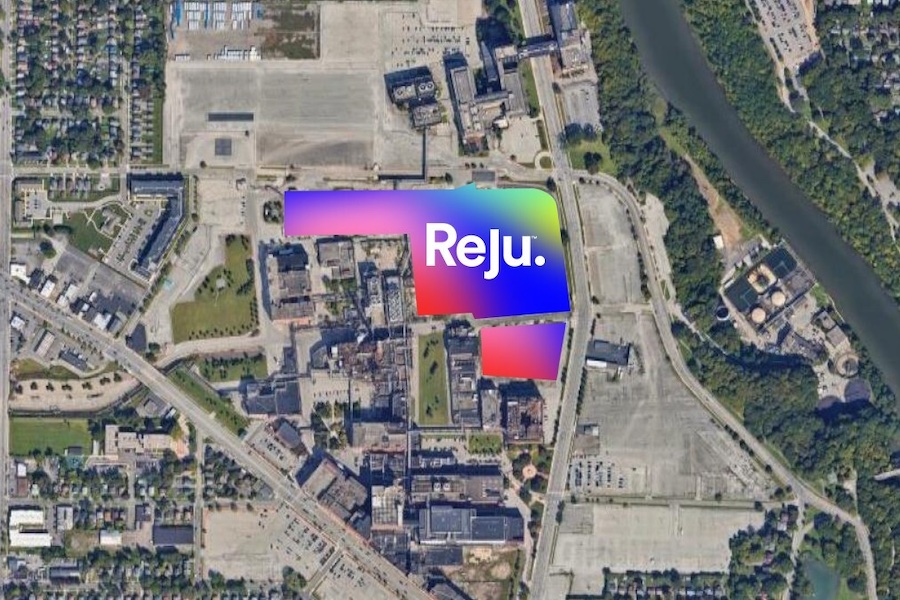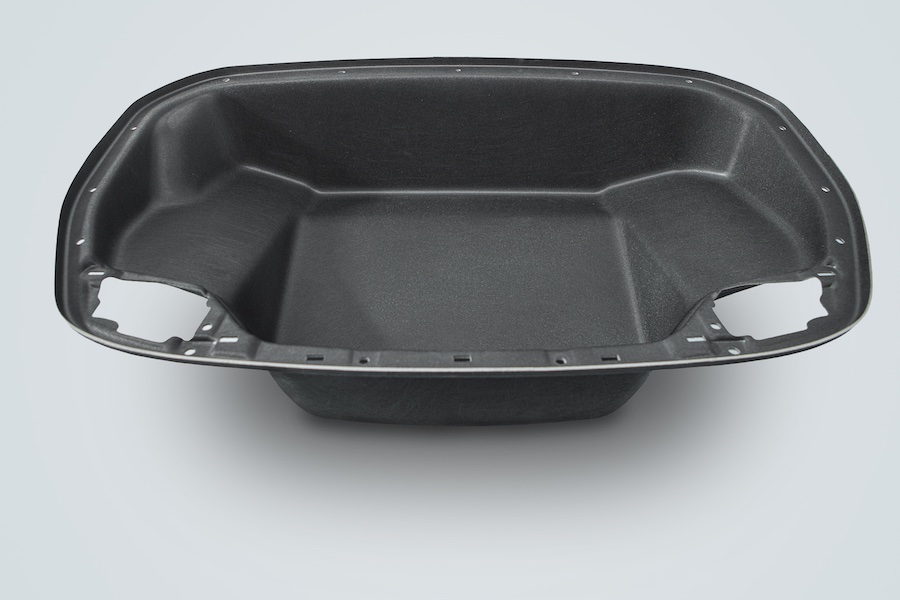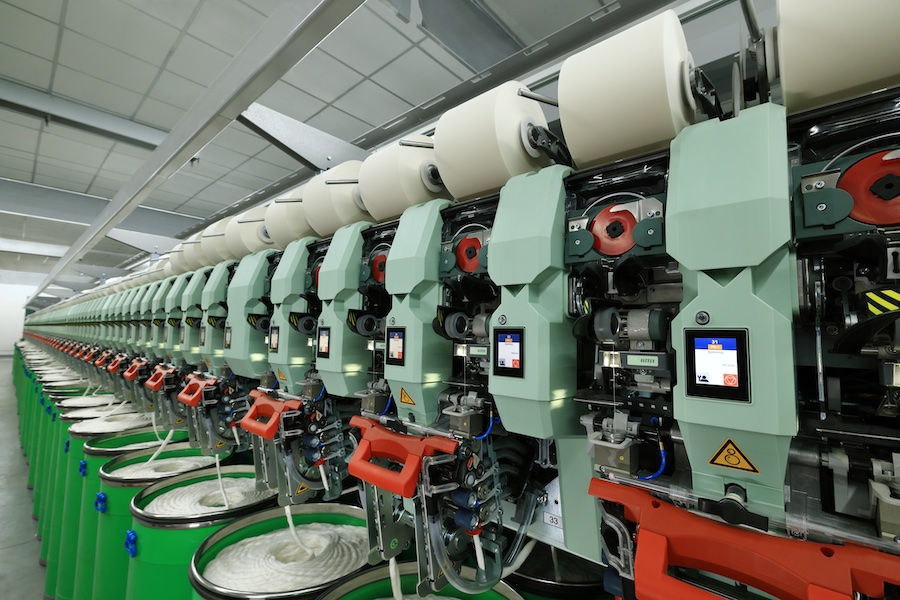#Recycling / Circular Economy
New market and technology report: Chemical recycling – Status, trends, and challenges – technologies, sustainability, policy and key players
The report provides deep insights into current developments in order to assert a position in the current discussion based on clear definitions and categorisations of all technologies. More than 70 companies and research institutes, which developed and offer chemical recycling technologies, are presented in the report. Each company is listed with its technologies and status, investment and cooperation partners. Additionally, the report provides an overview of waste policy in the European Union. And finally, 10 companies and research institutes were interviewed to receive first-hand information around the topic of chemical recycling.
There are existing gaps in the current life cycle of plastic products. Overall, 30 million tonnes of plastic waste are generated annually in Europe from which about 29 million tonnes are collected. The remaining one million tonnes of waste plastics per year are lost from the waste stream. Overall, 32 % of collected post-consumer plastics are recycled. The larger part of the collected plastic waste is incinerated (43 %) or landfilled (25 %) which are the least preferable options according the waste hierarchy. Besides conventional mechanical recycling and in the context of discussions on the improvement of current recycling rates, a wide spectrum of chemical recycling technologies is moving into focus.
Latest chemical recycling technologies as core technologies for recycling management and the European Green Deal?
Chemical recycling technologies are presenting innovative ways to deal with post-consumer waste. They are able to process waste streams that cannot be processed via mechanical recycling and offer a range of options that are not available in current material recycling pathways. Since these new technologies are in early development stages, developers are facing the challenge to prove their potential – in particular in regards to fundamentally changing the life cycle of plastics and increasing the amount of recycled plastics significantly. Furthermore, the technologies need to operate economically and ecological impacts needs to be evaluated which requires large-scale units.
However, aside from the early development stage, the situation on the market shows that many companies have already developed and even implemented their technologies at small scale. Chemical recycling is developing quickly due to the commitments of large-scale polymer producers. Several companies recently announced the construction of chemical recycling plants, some with the aim to be already operational in 2021. A number of these projects are based on collaborations and joint ventures, where the investment brings together technology and supply chain synergies, as for example between polymer/plastic producers and waste collectors. On the one hand, the whole sector is characterised by great dynamics, high expectations and investment interest. On the other hand, there are still great uncertainties and scepticism as to how the new technologies should be evaluated and regulated. In Europe, the chemical recycling sector is waiting for the start signal via clear political framework conditions.
What chemical recycling is about
The association Chemical Recycling Europe (CRE), defined chemical recycling “as any reprocessing technology that directly affects either the formulation of the polymeric waste or the polymer itself and converts them into chemical substances and/or products whether for the original or other purposes, excluding energy recovery” (ChemRecEurope 2020). According to this definition, chemical recycling comprises three mechanisms by which the polymer (1) is purified from plastics without changing its molecular structure, (2) is depolymerised into its monomer building blocks, which in turn can be repolymerised, and (3) is converted into chemical building blocks and can thus be used to produce new polymers. Based on these mechanisms the main chemical recycling technologies are solvent-based technologies including dissolution and solvolysis, thermochemical technologies including pyrolysis and gasification, and enzymolysis.
Main focus of the market and technology report
The market and technology report gives a deep insight into the current developments around chemical recycling and helps to take a stance on the current discussion with clear definitions and categorisations, the description of all chemical recycling technologies, the status of investments and implementations, the main actors, start-ups and the political framework in Europe. All currently known chemical recycling technologies are presented comprehensively and in detail. The report describes the suitability of available technologies for specific polymers and waste fractions as well as the implementation of already existing pilot, demonstration or even (semi-) commercial plants. It presents arguments as to which technologies can and should be accepted as recycling and counted in the recycling quotas. The report also includes guidance on which processes already have life cycle assessments (LCA) available. Finally, it discusses where experts see advantages and opportunities and where there might be disadvantages and risks of chemical recycling technologies.
At the core of the market and technology report are the chemical recycling technologies that are available on the market today or will soon be. All developments of the last years have been systematically classified and described. More than 70 companies and research institutes from Europe, North America, and Asia are presented, which developed and offer technologies for chemical recycling. Often there are already pilot and demonstration plants or even first (semi-)commercial plants. Each company, which includes a mix of both key players and start-ups, is presented with its technologies, implementation status and cooperation partners, which are mostly large chemical companies. Tables provide an overview of suppliers, technologies and co-operations. Furthermore, ten companies and research institutes were interviewed to receive first-hand information on the topic of chemical recycling. The report also covers a clarification and recommendation of existing definitions and classifications which are currently used but interpreted inconsistently.
What the supporters say
Proponents of chemical recycling see the new technologies as a core of the circular economy and the European Green Deal. Without chemical recycling, a fully closed circular economy of plastics and carbon would not be possible. Supporters argue that chemical recycling could effectively complement mechanical recycling in achieving a circular economy, as it would represent an intriguing solution to address plastic waste streams that previously could only be used for energy recovery or landfilled (e.g. mixed waste streams, strongly contaminated ones, multi-layer materials, etc.). As the collection and recycling system is not (yet) cost-effective and the quality of the recyclate is not sufficient to replace virgin plastic on a large scale, current mechanical recycling has limitations.
In contrast, chemical recycling technologies can remove contaminants through purification steps and create outputs comparable to virgin raw materials, which are then suitable for food-contact applications. Combinations of chemical and more traditional recycling methods therefore have the potential to reshape the entire plastics industry, including waste management, towards a completely circular economy.
A modern, sustainable plastics industry that fits into a circular economy cannot do without chemical recycling since the targets set up in the EU plastic strategy will not be achievable without implementing chemical recycling technologies. However, supporters call for a clear policy framework from EU policy makers.
What the sceptics say
Critics of chemical recycling refer to the low maturity of the technologies and the wide uncertainty ranges of existing assessments. Another overarching point of criticism refers to gasification and pyrolysis, which could undermine meaningful activities towards the circular economy. Why go to all the trouble of material reduction, product design for recycling, collection, separation and material recycling, when you can just put the entire waste into chemical recycling?
Sceptics furthermore argue that it is not yet clear which chemical recycling options really work for specific waste fractions, considering technologic, economic and ecologic aspects. Chemical recycling technologies are still surrounded by many uncertainties and EU policy makers are urged by sceptics to put the ‘right’ policy framework in place to regulate the sector. Furthermore, it is argued that chemical recycling technologies are at the early-stage of industrial development and will most likely be hampered by the same waste-specific issues that the mechanical recycling is facing.
On the basis of the current data situation, it must be assumed that mechanical recycling is in principle, and for most sorted waste streams, ecologically and economically more advantageous than chemical recycling, because less complex process environments and additive extensive recycling methods are used. In order to be able to make a final environmental assessment of chemical recycling, more time and research is required to demonstrate both the suitability of the techniques and the environmental benefits of the processes compared to energy recovery and mechanical recycling.
Transformation from fossil to renewable carbon
The change from virgin polymers from fossil fuels to recycled polymers as raw materials for the creation of plastics products saves energy and significantly reduces greenhouse gas (GHG) emissions. As of today, first life cycle assessments are available and show that different chemical recycling routes cause almost the same GHG emission reduction as mechanical recycling. However, since no commercial plants exist yet, the LCAs are still based on assumptions for scaling-up; reliable results can only be achieved by evaluating realised larger-scale plants.
More and more companies want to move away from fossil carbon, but they need alternative carbon sources, which are called “renewable carbon”. Chemical recycling unlocks plastic waste as a source of renewable carbon for the chemical and polymer industry, according to the definition of “renewable carbon” by nova-Insitute (Carus et al. 2020) and the Renewable Carbon Initiative (Renewable Carbon Initative) (http://www.renewable-carbon-initiative.com). To establish chemical recycling could potentially be the most important step towards a renewable carbon economy.
A consistent political framework is needed
In addition to technological developments, it is above all the political framework conditions that play a central role in how quickly chemical recycling will actually be implemented. Only clear, stable, consistent, and favourable framework conditions offer security for investments. nova’s market and technology report provide a comprehensive and detailed overview of waste policy in the European Union. Furthermore, on basis of the technical-ecological analyses conducted in this report, a reassessment of chemical recycling processes compared to their official status quo would be appropriate. This should focus in particular on the question of which technologies count as recycling and could be included in the recycling quota. The report points out that regulation should intent to direct the waste stream to the most suitable technology, with the lowest environmental impact, in a complementary approach. In fact, the waste hierarchy offers enough flexibility for selecting the most suitable technology without adversely affecting others. It is further elaborated that a suitable political framework should include a review and harmonisation of the end-of-waste legislation, an alignment of waste issues with the Registration, Evaluation, Authorisation and Restriction of Chemicals (REACH) and an inclusion of chemical recycling in the European Green Deal, the Circular Economy Package and the European Strategy for Plastics.
nova market studies are built on top of latest insights from market experts, thorough research and a large number of individual interviews with industry players to ensure highest quality of the available market data. The market and technology report “Chemical Recycling – Status, Trends, and Challenges” is now available for € 2,500 – in addition further market studies on various topics of the bio-based and CO2-based economy can be found at: http://www.bio-based.eu/reports/














